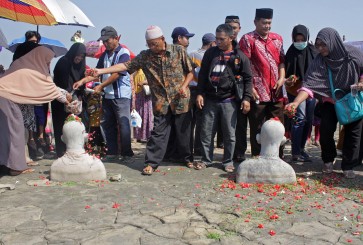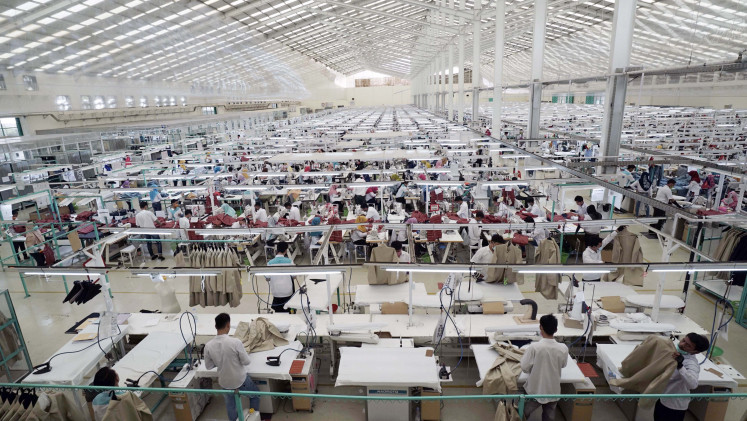Dam disaster: Seeking a paradigm shift
The dam collapse that killed more than 90 people living below Situ Gintung Lake in Tangerang, West Java is indeed a sad tragedy
Change text size
Gift Premium Articles
to Anyone

The dam collapse that killed more than 90 people living below Situ Gintung Lake in Tangerang, West Java is indeed a sad tragedy. But this disaster is just the tip of the iceberg of hazards that lurk for the many people living in Indonesia’s flood prone areas.
Disaster mitigation projects are expensive and require heavy government involvement are therefore difficult to sell politically, especially when the direct impact cannot be immediately seen. Indeed, when only the present is considered, the immediate benefits of investing in vulnerability reduction as opposed to the benefits of providing post-disaster relief are hard to fathom.
Under such circumstances, using the current general election as a context, it’s more “beneficial” for political entities to provide disaster relief than make an effort to significantly reduce the possibility of disasters that may or may not happen. A disaster is not a disaster until it hits a human population, until then it’s merely a natural event, a hazard at most.
In many developed countries, floods are primarily caused by over development in floodplain areas, which destroys the areas natural “protection”. In less developed countries, disasters are a combination of lack of choice, the government’s lack of capacity, funds and political will; and information asymmetry.
The failure of the Situ Gintung dam is an example of this. Having inherited the dam from the Dutch, the government has paid little attention to its maintenance. In the meantime, as the population has grown, people have had less choice as to where they can build.
There are more vulnerable dams than Situ Gintung, both in and outside Jakarta. According to press reports, the names of several problematic dams emerged in public, where local government officials ignored warnings and suggestions that they might fail at any moment. While this is no time for the blame game, it is important that such mistakes are not repeated in the future.
Thus, it is imperative that greater effort is made to prevent such disasters in the first place. First, the government needs to create a database of dams, to monitor their condition and maintenance. This would start a chain of further budgetary allocations and ensure that vulnerable dams do not threaten communities. It is true that structural mitigation efforts are expensive, but it creates a feeling of invincibility that somehow the structures can provide ultimate protection against any type of flood.
So, there needs to be a comprehensive disaster mitigation effort, not only structural enhancement efforts. For example, the encroachment of development into floodplain areas should be minimized or avoided altogether. In addition, the public that occupy floodplain areas needs to be informed of the risks of their situation. Information of the risk would then be further translated into efforts to minimize harm to victims when a structure fails, having a detailed evacuation plan, for instance.
There also needs to be a more effective early warning system, in case an impending disaster is near. In some extreme cases, people living on floodplains need to understand that they might have to move to avoid disasters.
All this requires the political will of the government. The political economy of policy choices would determine if long term human safety is more beneficial than short-term economic achievements.
Many of us are skeptical that the government will pay more attention to flood mitigation.
Indonesia’s democracy has not reached the point where public opinion can punctuate the equilibrium of policy and creating major changes in it. Regardless, a concerted effort needs to be made to raise awareness about the issue of disaster mitigation to policy makers, despite the bitter fact that it might fall on deaf ears. Again, this tragedy is only a tip of the iceberg. Without any further shifts in policy to address this issue, more people will unnecessarily lose their lives.
The writer is a Ph.D candidate at the Center for Public Administration and Policy, and a graduate
system analyst at the Office of Capital Asset and Financial Management, Virginia Tech.









